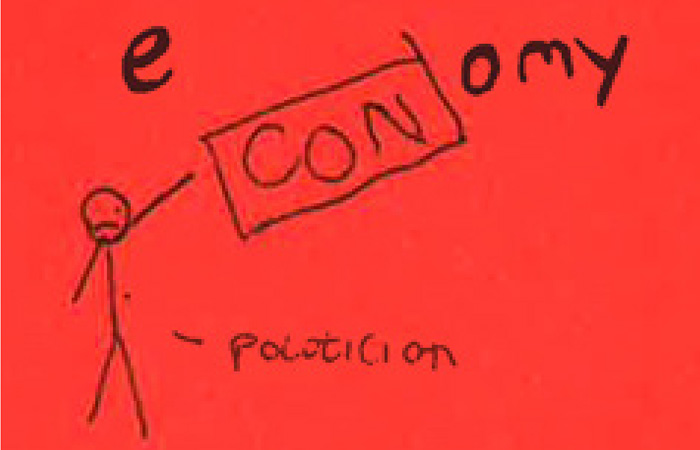Citizens, Participation and Economics
Ahead of the Autumn Budget, the RSA have published two publications about the Citizens’ Economic Council programme. The programme piloted models of engagement that seek to enable citizens, including those ‘left-behind’ citizens in Leave areas, to ‘take back control’ of the economic decisions that affect their lives.
In the RSA’s Citizens’ Economic Council interim report ‘Citizens, Participation and the Economy’, it cautions that decision-makers need to find new ways of engaging citizens earlier and upstream in economics to avoid the annual Budget media controversies such as ‘pasty-gate’ or the 10p tax row.
Drawing upon roadshow workshops held in Clacton-on-Sea, Port Talbot, Glasgow, and Birmingham, as well as nine day-long workshops on economics with randomly selected citizens, the RSA shows how the UK public’s decline in trust in politicians, economists and business is closely connected to the distance they feel from decisions made about the economy. This issue was brought to light by both the ‘Brexit’ vote and the Edelman Barometer 2017.
In Port Talbot, a town deeply affected by deindustrialisation, one participant sketched the following when asked to draw an image of how they saw the economy:

The RSA report illustrates how gender inequalities and regional economic variations, are often overlooked by national narratives about the economy and economic performance, narratives which often aggregate figures and mask the varying levels of income and wealth distribution of different sections of society.
To address this problem, the Citizens’ Economic Council found ways of communicating and engaging a diverse group of citizens on how they could reclaim terms such as ‘GDP’ (Gross Domestic Product). In this interim report, the RSA sets out some emerging recommendations which it tested with a range of stakeholders. The RSA’s work, through the Citizens’ Economic Council, proposes a series of measures to help rebuild trust, including that economic institutions, such as government and the Bank of England, use randomly selected Citizens’ Councils and juries to better understand the public’s views on important issues. This could include their views on the setting of interest rates, as well as the decisions announced in the Chancellor of the Exchequer’s Budget. Specific recommendations include:
- With the Budget tomorrow, HM Treasury pilots Citizens’ Reference Panels, juries and other ways of engaging citizens to give their views – rather than making policy behind closed doors in Whitehall.
- The Bank of England pilot Citizens’ Reference Panels and other deliberative approaches with a view to advising their departments and committees on key economic decisions including the setting of interest rates.
- Combined authorities, local authorities and Local Enterprise Partnerships seize the opportunities of devolution, engaging citizens through the development and implementation of their devolution deals.
The RSA recognises that the adoption of advisory councils by institutions alone is not sufficient. It is also important to create the right conditions in which they can thrive. To this end, RSA proposes that the government creates a code of practice for effective public engagement and participation, recognising the sheer range of engagement approaches that can empower citizens; for example, participatory budgeting, citizens’ reference panels, citizen juries and co-production methods. At its core should be engagement and participation practice that extends beyond simple consultation towards approaches that promote dialogue and allow sufficient time and space for policymakers to respond to citizens’ views.
To make this possible RSA also proposes the creation of an expert resource centre on inclusive and participatory economic policy that would support government departments, non-departmental public bodies and publicly funded organisations, including the Bank of England. It would be modelled on Sciencewise, a similar programme funded by the Department for Business, Energy Innovation and Skills, which offers public bodies support in participatory policymaking relating to science and technology issues. Both the code of practice and expert resource centre would also work in co-operation with the existing international Open Government Network. The Network engages civil society in creating a more open and transparent approach to government across the world, and builds on those ambitions set out in the Civil Service 2012 reform plan.
- Download the report: Citizens, participation and the economy (PDF, 2MB)
- Download the report: Findings from the RSA’s Economic Inclusion Roadshow (PDF, 2.7 MB)
The final RSA report will be published in Spring 2018.
